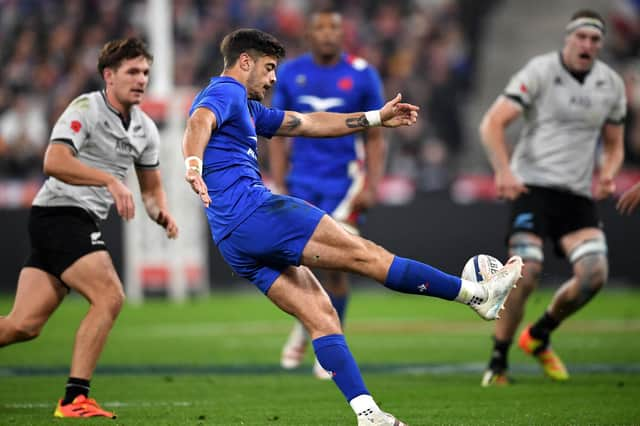No exaggerated Scotland Six Nations expectations - but one France player is really catching the eye


We may be near to having a settled starting XV with perhaps three places In doubt, all ones which might quite reasonably be settled by a toss of the coin. It would be nice of course if Finn’s masters at Racing 92 gave him place-kicking duty in a few matches, but it seems unlikely.
Looking ahead, Ireland might approach the Six Nations with high expectations, but these will be tempered by the realisation that they have away matches at Twickenham and in Paris. They may win the title, but a Grand Slam looks improbable. Improbable for anyone, I guess, since England also have to go to the Stade de France, while, however high France are flying after their win against the All Blacks, visits to Murrayfield and Cardiff – the latter a Friday evening game – are both challenging.
Advertisement
Hide AdAdvertisement
Hide AdStill, this is undoubtedly the best French team in years and their match against New Zealand was the highlight of November. It suggested that there is little need for revisions of the laws – so long as both teams determined to attack. This game offered both robust and skilful forward play and imaginative and daring running from the backs. It ebbed and flowed and when the All Blacks recovered to be only two point behind with almost a quarter of the match still to be played, I doubt if many would have bet on a French victory. But then came Romain Ntamack’s daring decision to run from behind his own try-line and for a moment – until Albie Savea killed the ball, for which he was rightly sent to cool his heels on the bench – it looked as if we were to be treated to another French “try from the end of the world”.
Ntamack is a delightfully daring player, a lovely light-footed runner. No doubt he will have days when things don’t come off and his team suffers, but if his half-back partner Antoine Dupont is so good that he stirs memories of Gareth Edwards, Ntamack recalls Barry John and John Rutherford. By harking back to the amateur era, I make the point that both play what is in front of them, not according to some well-coached drill.
In England Eddie Jones has set in motion a rejuvenation of what had become a stodgy England team. In Freddie Steward, he has got himself a full- back whose fielding of the high ball is so good – in the Rob Kearney class – that any but the most precisely judged kick down the middle of the field is likely to be returned with interest. Then, even if Marcus Smith may not prove to be the Messiah (as some English journalists have already decided he is), he does fit in to what one hopes is the pattern for a new generation of fly-halves, a pattern first set by Finn Russell. All at once Dan Biggar, for all his qualities, looks old-fashioned.
While some may have doubts about World Rugby’s decision to let players switch from one country to another one in which they or a parent or grandparent were born, the likely beneficiaries are mostly the South Sea nations – that’s to say, those that have suffered most from the present regulations. Which have led to players being lured to richer countries before they have been selected for their own one. A three-year gap between playing for one country and then switching to another seems reasonable, every bit as reasonable as the move from three to five years for a residential qualification.
One should admit that we in Scotland may benefit too, given the number of players qualified by place of birth or family connections for both England and Scotland. There might be a drawback of course, a young dual-qualified player accepting an invitation to play for England while being conscious that if he is soon discarded he might still play for Scotland. I guess this would be uncommon. In which contest it was good to hear the previously dual-qualified young hooker Ewan Ashman now tied to Scotland having been capped against Australia, asserting that he had always hoped to play for Scotland and, anyway, would have found the door barred to him at home if he had opted for England. I guess there was some exaggeration there, but he made his point well.